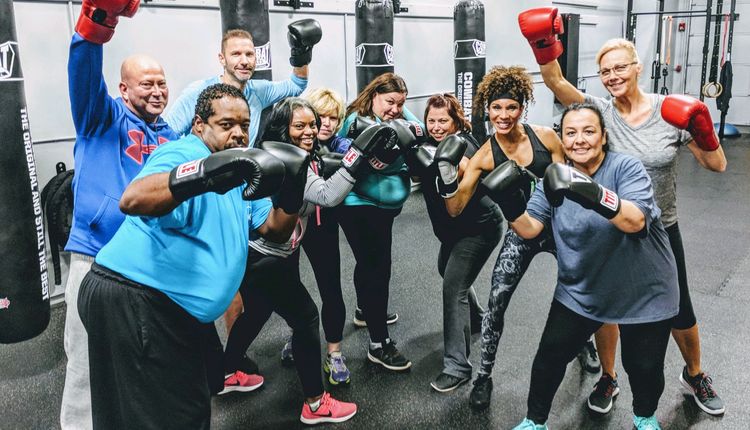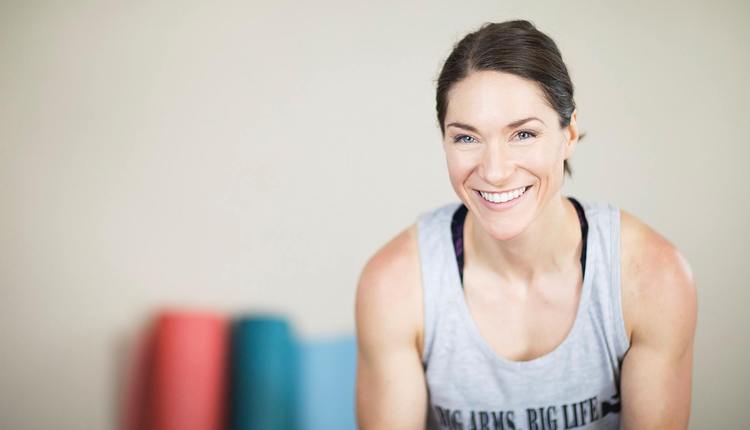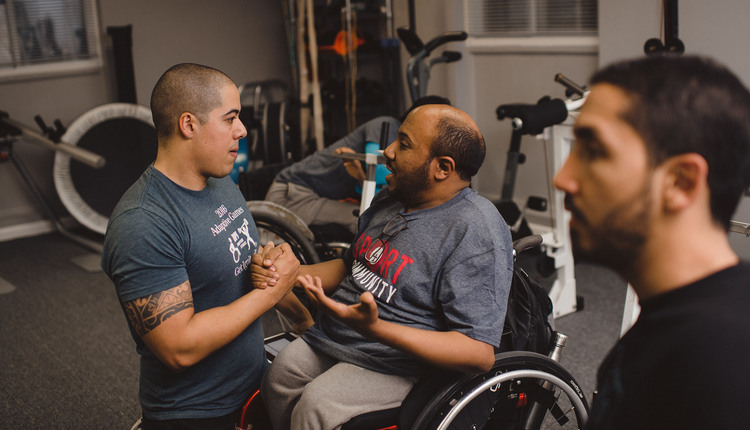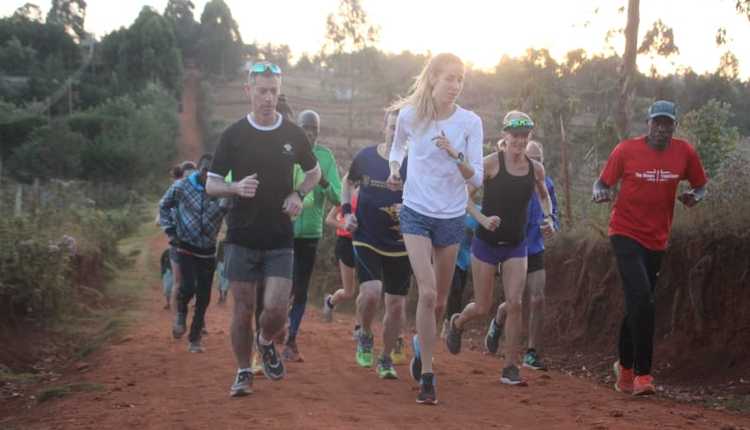A Q&A with four franchise creators on where the boot camp trend is heading
Back in 1998, I wrote an article for a local magazine about some military-style fitness boot camps that were popping up across the Austin, Texas landscape. Even though I didn’t inject my opinion in the magazine, I thought of the emerging boot camp trend as a passing phase, figuring it would die out in a year or so.
Was I wrong! Now, 12 years later and a three-year boot camp coach myself, it has been a lucrative supplement to my personal training studio. Boot camps have evolved from the military style I wrote about earlier into something much bigger, with wider appeal. But after talking with some concerned fitness pros and noticing a new boot camp popping up almost weekly, even in my small town, there were some questions that needed answers. Is the boot camp an oversaturated trend, or is it here to stay? What does the future of the boot camp look like? And is it too late for a fitness pro to ride the boot camp wave if he or she is just now stepping into the water?
You’ll find the answers to these questions, either directly or between the lines, in the responses from our panel of boot camp innovators. These folks not only coach boot camps; they have made profitable boot camp business models available to anybody. They’ve been there, done that and are perfectly positioned to see into the future.
Steve Hochman is co-founder of Fit Body Boot Camp, the largest indoor boot camp licensing business model in the world (www.myfitbodybootcamp.com, 877.205.3448). He went from pizza delivery man to studio owner in two years. In 2009,Thhe created or co-created five informational products, opened seven boot camp locations and helped thousands of fitness professionals create the “do what I want, when I want” lifestyle.
Christina Lucy is the founder of the EZ8 Running Camp, Code Pink Boot Camp (www.codepinkbootcamp.com), as well as the Coaching Business Program. Christina also co-developed the Adventure Boot Camp educational program and has trained over 250 fitness trainers around the world to open their own successful boot camps. She has taught group fitness classes for over 20 years in fitness clubs and spas throughout the country.
Georgette Pann is owner of NutriFitness LLC (www.thenutrifitness.com), author and creator of the Sure Victory Fitness Bootcamp Kit and the creator of The Fitness Bootcamp Inner Circle community. She has 20+ years of experience in the health and fitness field with expertise in fitness boot camps. Also just released Sure Results: The Ultimate Book Of Boot Camp Workouts, Volume 2 and the Fitness Boot Camp Marketing Plan in a Box.
Lori Patterson is owner of Midwest Fitness Consulting, LLC and the creator of Boot Camp Challenge (www.bootcampchallenge.com). While serving in the U.S. Army, she created a program from training over 300 troops and cadre. Since then, she earned a degree in mass communications, co-hosted a cable fitness show and implements and directs group training programs nationwide. Lori has served 26 years in the fitness industry, holding certifications with ACE, ACSM and AFAA.
Q: Tell us about your boot camp program. How is it unique?
GEORGETTE: NutriFitness LLC/Sure Victory Fitness Bootcamps are independent and target largely to the baby boomer. We saw the need for a new and innovative way to train in 2004-05 and as a result simultaneously started NutriFitness personal training studio along with our Sure Victory boot camps. Our style of training includes not only bodyweight training; we also make use of innovative equipment such as the TRX, Lebert Equalizers, ropes, tires, sleds, etc. for an added dimension. We also offer customized meal plans and an indoor/outdoor boot camp option.
CHRISTINA: Code Pink Boot Camp was founded in January 2008, mainly for women, ages 25-60, predominately. Our main focus is that women enjoy group camaraderie and a specific type of workout geared to their bodies. Safety is our number-one concern; there are a lot of “boot camp” exercises that are unsafe or ill-monitored in many boot camp programs.
LORI: Boot Camp Challenge began development in 2000. After seven years of launches, we licensed the program and began selling the business model to individual fitness professionals and fitness facilities. Our target market for troops is “any participant ready to make change.” The needs for the fitness professionals/ fitness facilities were several: The first is a proven business model that could be launched anywhere and anytime with success for the troops as well as an ROI for the licensee. The second was the experience and skill to create programming which contained the essence of the military as well as multiple levels of each exercise so every troop could “accomplish the mission.”
STEVE: Fit Body Boot Camp was launched in May of 2009 and in that time has grown to 123 licensed locations worldwide. Fit Body Boot Camp has three significant differences: (1) By renting space in gymnastic and cheerleading facilities, our boot camps hit the ground running with 500-7,000 qualified leads (the moms of the kids at the facility and on their database); (2) because our boot camps are indoors, issues like rain, damp grass, cold weather and darkness are eliminated; and (3) Fit Body Boot Camps only operate out of authorized locations, so they are not in danger of having to relocate.
Q: It seems that there is a boot camp now on every corner. Is the market saturated? Where will future growth come from for boot camp operators?
GEORGETTE: I feel the market is not saturated at this point, but in some larger cities, it can be an issue. My advice would be to niche out your camps, i.e. kids’ camps, athletic-based boot camps, women- or men-only, seniors, corporate camps, etc. The other, more obvious advice would be to get your campers results and add that social proof, since word-of-mouth is the best form of advertising!
STEVE: With the fitness market saturated with boot camps, it can be very difficult to stand out in the crowd. Operators who combine direct response marketing, out-of-the-box referral marketing and the power of a unified global front are at a tremendous advantage.
Q: Is boot camp a fitness fad that will eventually play itself out (like Jazzercise), or is it a form of exercise that will continue to grow and evolve?
LORI: Firstly, for the operators, boot camps are a business that can be low-cost, have low startup fees and low overhead; and they can launch anywhere, anytime, with minimal equipment. Secondly, boot camps will continue to draw troops who may never feel comfortable joining a gym or facility. We are meeting their needs by bringing the workout to them.
CHRISTINA: Well, Jazzercise has made a comeback! I believe the boot camp craze will reach a low point, then evolve and, once again, grow.
Q: Do you believe boot camps will continue to segment the populations they serve in order to differentiate themselves?
GEORGETTE: Personally, I looked at my demographics and have experimented with offering youth and senior camps as well as athletic camps, and more importantly, I see a huge opportunity for corporate boot camps, which we are developing now for 2010.
STEVE: Segmentation, for the most part, is good. Find a demographic that has a fitness problem, and create a fitness boot camp to solve it. When you pick your niche, carve it narrow and deep, and make sure that it serves your passion.
Q: Do you foresee continued demand from independent trainers? How are they maneuvering to stay ahead of the big gyms that offer boot camps as just another revenue stream?
LORI: Individual fitness professionals benefit from a boot camp program because, for most, it is their only business. They can spend most of their business hours growing, promoting and marketing their boot camp company. They can easily reach out to their communities, local corporations and school districts. Most larger facilities have multiple departments they have to manage and oversee.
STEVE: When I first became a fitness professional, prospects would ask me what the difference was between my service and the service at the huge chain gyms. The answer was customer service and quality. It’s very difficult for the big chain gyms to compete on customer service and quality because the best fitness professionals usually get enough referrals to go off on their own.
Q: What qualities make for a lasting and lucrative boot camp?
GEORGETTE: The coach/trainer must not only be comfortable training groups but have high energy; they must be able to think on their feet and adapt to situations quickly. Spend time planning out your vision as well as your specifics (where, when, how); planning your workout programs and getting clients results are top priority.
LORI: Most camps that succeed start with a trainer who cares about the outcome of the “troops.” If the trainer is just in for the money, the troops will know it and will seek out someone who cares. The program must also be results-driven. If it is a workout with jacks, squats and push-ups and nothing more, the troops will seek out a program that shows results. Everyone wants to know after several weeks that they have changed.
Q: What does 2010 and beyond hold for fitness boot camps?
GEORGETTE: I see the boot camp business continuing to grow, with trends leaning to corporate fitness and wellness.
LORI: I believe trainers and facilities will continue seeking quality boot camp programming because sooner or later, everyone realizes there has to be a “battle plan” in order to win the war!
STEVE: Following evolution of personal training in the very near future, standalone boot camp studios will open. The startup cost is low, and so is the overhead. They can be opened in a low-cost industrial space, versus expensive retail space.
CHRISTINA: It will be more lean; I believe those that don’t have what it takes will fall by the wayside. It seems the kettlebell boot camps might be a wave coming through!
Back in 1998, I wrote an article for a local magazine about some military-style fitness boot camps that were popping up across the Austin, Texas landscape. Even though I didn’t inject my opinion in the magazine, I thought of the emerging boot camp trend as a passing phase, figuring it would die out in a year or so.
Was I wrong! Now, 12 years later and a three-year boot camp coach myself, it has been a lucrative supplement to my personal training studio. Boot camps have evolved from the military style I wrote about earlier into something much bigger, with wider appeal. But after talking with some concerned fitness pros and noticing a new boot camp popping up almost weekly, even in my small town, there were some questions that needed answers. Is the boot camp an oversaturated trend, or is it here to stay? What does the future of the boot camp look like? And is it too late for a fitness pro to ride the boot camp wave if he or she is just now stepping into the water?
You’ll find the answers to these questions, either directly or between the lines, in the responses from our panel of boot camp innovators. These folks not only coach boot camps; they have made profitable boot camp business models available to anybody. They’ve been there, done that and are perfectly positioned to see into the future.
Steve Hochman is co-founder of Fit Body Boot Camp, the largest indoor boot camp licensing business model in the world (www.myfitbodybootcamp.com, 877.205.3448). He went from pizza delivery man to studio owner in two years. In 2009,Thhe created or co-created five informational products, opened seven boot camp locations and helped thousands of fitness professionals create the “do what I want, when I want” lifestyle.
Christina Lucy is the founder of the EZ8 Running Camp, Code Pink Boot Camp (www.codepinkbootcamp.com), as well as the Coaching Business Program. Christina also co-developed the Adventure Boot Camp educational program and has trained over 250 fitness trainers around the world to open their own successful boot camps. She has taught group fitness classes for over 20 years in fitness clubs and spas throughout the country.
Georgette Pann is owner of NutriFitness LLC (www.thenutrifitness.com), author and creator of the Sure Victory Fitness Bootcamp Kit and the creator of The Fitness Bootcamp Inner Circle community. She has 20+ years of experience in the health and fitness field with expertise in fitness boot camps. Also just released Sure Results: The Ultimate Book Of Boot Camp Workouts, Volume 2 and the Fitness Boot Camp Marketing Plan in a Box.
Lori Patterson is owner of Midwest Fitness Consulting, LLC and the creator of Boot Camp Challenge (www.bootcampchallenge.com). While serving in the U.S. Army, she created a program from training over 300 troops and cadre. Since then, she earned a degree in mass communications, co-hosted a cable fitness show and implements and directs group training programs nationwide. Lori has served 26 years in the fitness industry, holding certifications with ACE, ACSM and AFAA.
Q: Tell us about your boot camp program. How is it unique?
GEORGETTE: NutriFitness LLC/Sure Victory Fitness Bootcamps are independent and target largely to the baby boomer. We saw the need for a new and innovative way to train in 2004-05 and as a result simultaneously started NutriFitness personal training studio along with our Sure Victory boot camps. Our style of training includes not only bodyweight training; we also make use of innovative equipment such as the TRX, Lebert Equalizers, ropes, tires, sleds, etc. for an added dimension. We also offer customized meal plans and an indoor/outdoor boot camp option.
CHRISTINA: Code Pink Boot Camp was founded in January 2008, mainly for women, ages 25-60, predominately. Our main focus is that women enjoy group camaraderie and a specific type of workout geared to their bodies. Safety is our number-one concern; there are a lot of “boot camp” exercises that are unsafe or ill-monitored in many boot camp programs.
LORI: Boot Camp Challenge began development in 2000. After seven years of launches, we licensed the program and began selling the business model to individual fitness professionals and fitness facilities. Our target market for troops is “any participant ready to make change.” The needs for the fitness professionals/ fitness facilities were several: The first is a proven business model that could be launched anywhere and anytime with success for the troops as well as an ROI for the licensee. The second was the experience and skill to create programming which contained the essence of the military as well as multiple levels of each exercise so every troop could “accomplish the mission.”
STEVE: Fit Body Boot Camp was launched in May of 2009 and in that time has grown to 123 licensed locations worldwide. Fit Body Boot Camp has three significant differences: (1) By renting space in gymnastic and cheerleading facilities, our boot camps hit the ground running with 500-7,000 qualified leads (the moms of the kids at the facility and on their database); (2) because our boot camps are indoors, issues like rain, damp grass, cold weather and darkness are eliminated; and (3) Fit Body Boot Camps only operate out of authorized locations, so they are not in danger of having to relocate.
Q: It seems that there is a boot camp now on every corner. Is the market saturated? Where will future growth come from for boot camp operators?
GEORGETTE: I feel the market is not saturated at this point, but in some larger cities, it can be an issue. My advice would be to niche out your camps, i.e. kids’ camps, athletic-based boot camps, women- or men-only, seniors, corporate camps, etc. The other, more obvious advice would be to get your campers results and add that social proof, since word-of-mouth is the best form of advertising!
STEVE: With the fitness market saturated with boot camps, it can be very difficult to stand out in the crowd. Operators who combine direct response marketing, out-of-the-box referral marketing and the power of a unified global front are at a tremendous advantage.
Q: Is boot camp a fitness fad that will eventually play itself out (like Jazzercise), or is it a form of exercise that will continue to grow and evolve?
LORI: Firstly, for the operators, boot camps are a business that can be low-cost, have low startup fees and low overhead; and they can launch anywhere, anytime, with minimal equipment. Secondly, boot camps will continue to draw troops who may never feel comfortable joining a gym or facility. We are meeting their needs by bringing the workout to them.
CHRISTINA: Well, Jazzercise has made a comeback! I believe the boot camp craze will reach a low point, then evolve and, once again, grow.
Q: Do you believe boot camps will continue to segment the populations they serve in order to differentiate themselves?
GEORGETTE: Personally, I looked at my demographics and have experimented with offering youth and senior camps as well as athletic camps, and more importantly, I see a huge opportunity for corporate boot camps, which we are developing now for 2010.
STEVE: Segmentation, for the most part, is good. Find a demographic that has a fitness problem, and create a fitness boot camp to solve it. When you pick your niche, carve it narrow and deep, and make sure that it serves your passion.
Q: Do you foresee continued demand from independent trainers? How are they maneuvering to stay ahead of the big gyms that offer boot camps as just another revenue stream?
LORI: Individual fitness professionals benefit from a boot camp program because, for most, it is their only business. They can spend most of their business hours growing, promoting and marketing their boot camp company. They can easily reach out to their communities, local corporations and school districts. Most larger facilities have multiple departments they have to manage and oversee.
STEVE: When I first became a fitness professional, prospects would ask me what the difference was between my service and the service at the huge chain gyms. The answer was customer service and quality. It’s very difficult for the big chain gyms to compete on customer service and quality because the best fitness professionals usually get enough referrals to go off on their own.
Q: What qualities make for a lasting and lucrative boot camp?
GEORGETTE: The coach/trainer must not only be comfortable training groups but have high energy; they must be able to think on their feet and adapt to situations quickly. Spend time planning out your vision as well as your specifics (where, when, how); planning your workout programs and getting clients results are top priority.
LORI: Most camps that succeed start with a trainer who cares about the outcome of the “troops.” If the trainer is just in for the money, the troops will know it and will seek out someone who cares. The program must also be results-driven. If it is a workout with jacks, squats and push-ups and nothing more, the troops will seek out a program that shows results. Everyone wants to know after several weeks that they have changed.
Q: What does 2010 and beyond hold for fitness boot camps?
GEORGETTE: I see the boot camp business continuing to grow, with trends leaning to corporate fitness and wellness.
LORI: I believe trainers and facilities will continue seeking quality boot camp programming because sooner or later, everyone realizes there has to be a “battle plan” in order to win the war!
STEVE: Following evolution of personal training in the very near future, standalone boot camp studios will open. The startup cost is low, and so is the overhead. They can be opened in a low-cost industrial space, versus expensive retail space.
CHRISTINA: It will be more lean; I believe those that don’t have what it takes will fall by the wayside. It seems the kettlebell boot camps might be a wave coming through!















